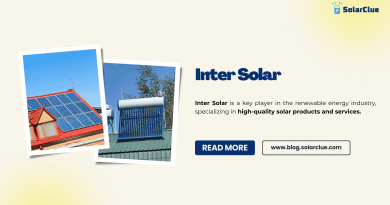Solar Power Systems for Hospitals
There is an increasing concerns about climate change and the rising costs of traditional energy sources. So installation of solar power systems for hospitals is a more sustainable and cost-effective alternative. Solar power systems harness the natural energy of the sun to produce electricity. This can help hospitals reduce their carbon footprint and lower their energy bills.
Table of Contents
The Benefits of Using Solar Power Systems for Hospitals
Reducing Operating Costs
One of the main benefits is the significant reduction in operating costs. Hospitals are large facilities that require a considerable amount of energy to operate 24/7. By installing solar panels on their premises, hospitals can generate their own electricity and reduce their reliance on the grid. This can result in substantial savings on electricity bills, allowing hospitals to allocate more resources to patient care and other important services.
Reliable Source of Energy
It provides with a reliable source of energy, especially during times of power outages or emergencies. Hospitals require uninterrupted power supply to operate essential equipment and provide life-saving treatments to patients. By having solar panels installed, hospitals can ensure that they have a backup source of electricity that is not dependent on external factors.
Environmental Benefits
Using solar power systems for hospitals can have a significant positive impact on the environment. Traditional sources of energy, such as coal and natural gas, produce harmful emissions that contribute to air pollution and climate change. By using solar power, hospitals can reduce their carbon footprint and help mitigate the effects of global warming. Additionally, solar power systems do not require water for cooling, unlike traditional power plants, which helps conserve this precious resource.
Enhancing Sustainability
By investing in solar power systems, hospitals can demonstrate their commitment to sustainability and environmental stewardship. Patients, staff, and the community at large are increasingly conscious of the environmental impact of healthcare facilities. By using clean and renewable energy sources, hospitals can improve their reputation and attract environmentally conscious patients and employees.
Government Incentives
Many governments offer incentives and rebates to encourage the adoption of solar power systems. Hospitals can take advantage of these programs to offset the initial cost of installing solar panels and make the transition to clean energy more affordable. In addition to financial incentives, governments may also offer tax credits and grants to support the implementation of solar power systems in hospitals.
Challenges and Considerations
While there are many benefits to using solar power systems for hospitals, there are also some challenges and considerations to keep in mind. The initial cost of installing solar panels can be high, and hospitals may need to secure financing or grants to cover the expenses. Additionally, the availability of sunlight and the physical layout of the hospital building can impact the efficiency of the solar power system.
Conclusion
Solar power systems offer numerous benefits for, including reducing operating costs, providing a reliable source of energy, and enhancing sustainability. By investing in solar energy, hospitals can not only save money but also contribute to a cleaner and healthier environment. With government incentives and advancements in solar technology, now is the perfect time for hospitals to consider making the switch to solar power systems.




